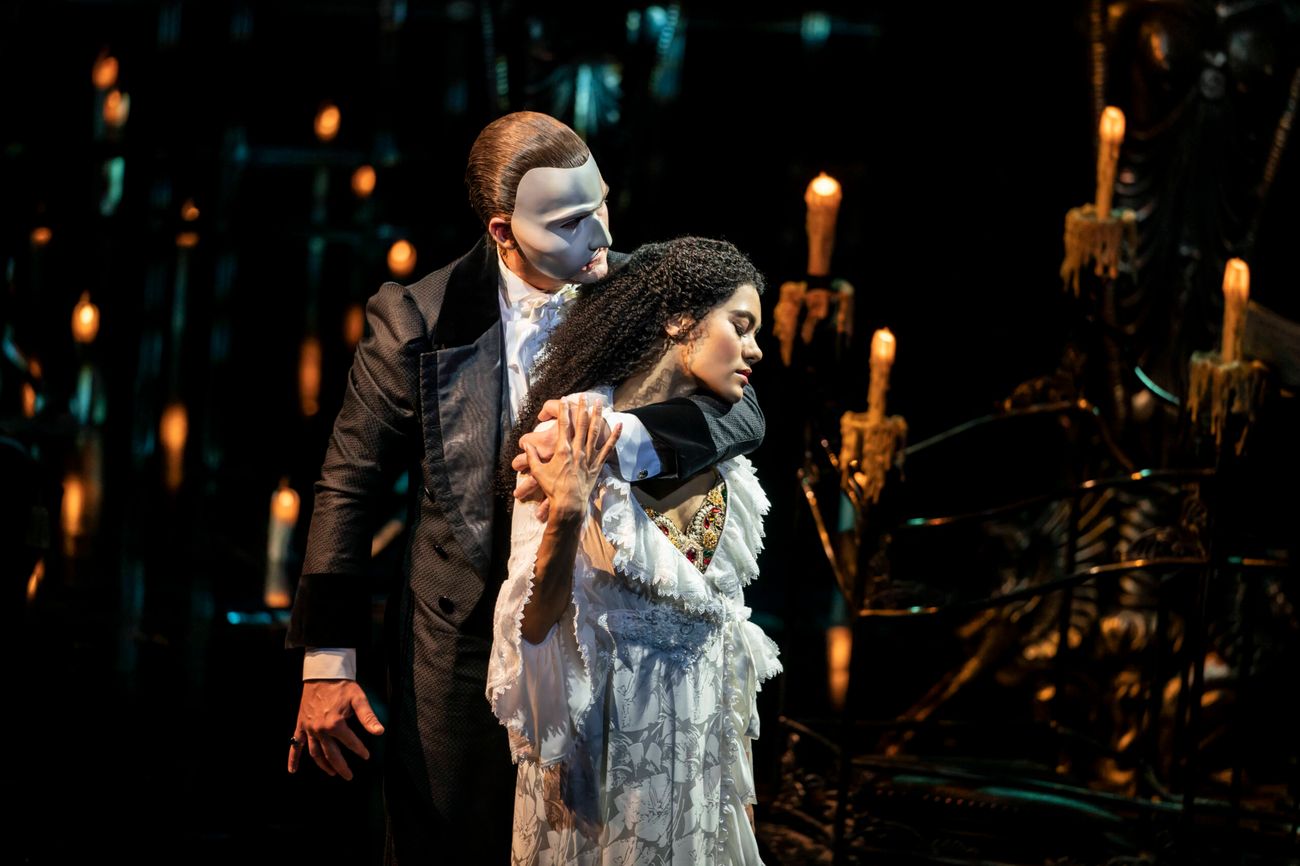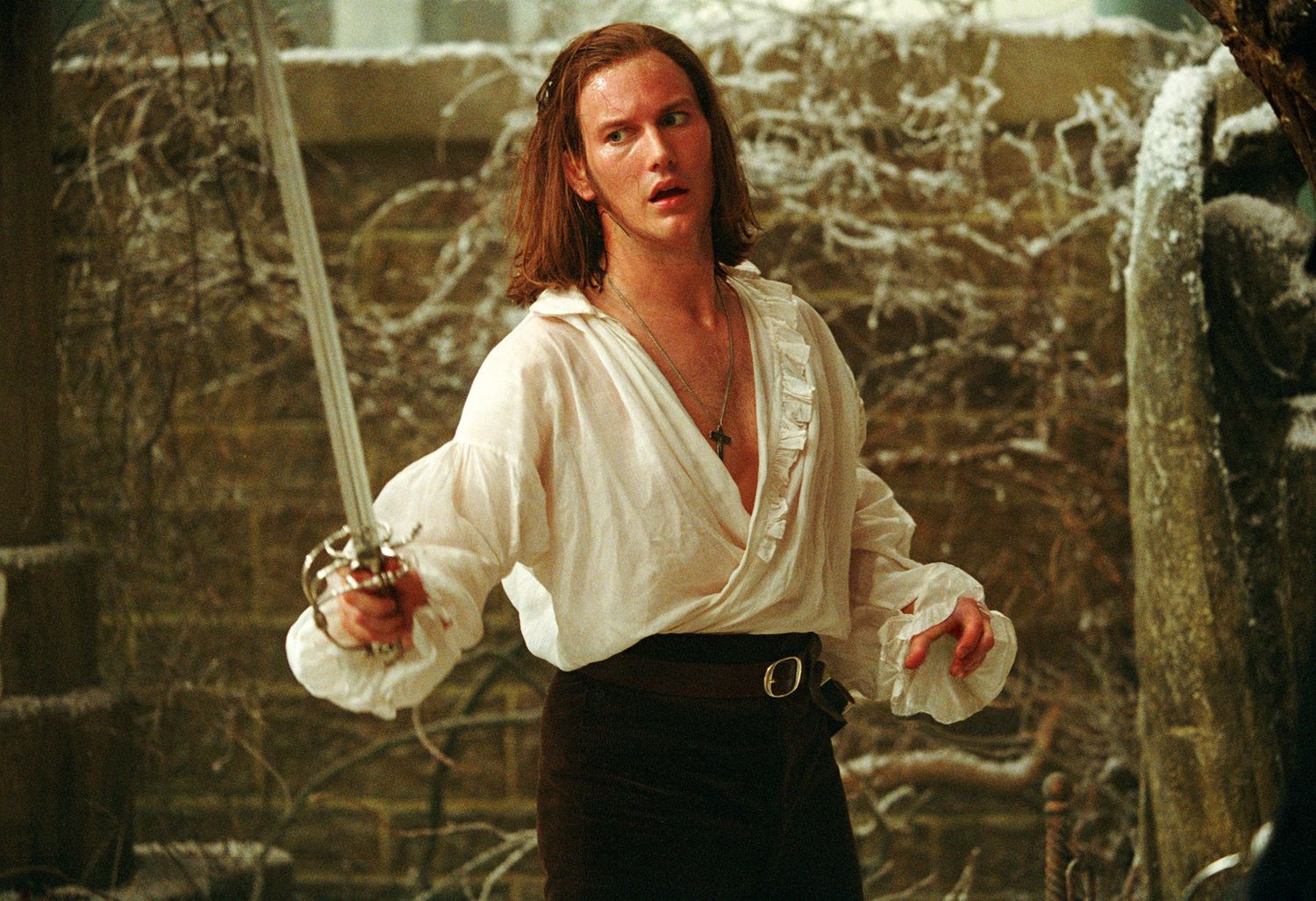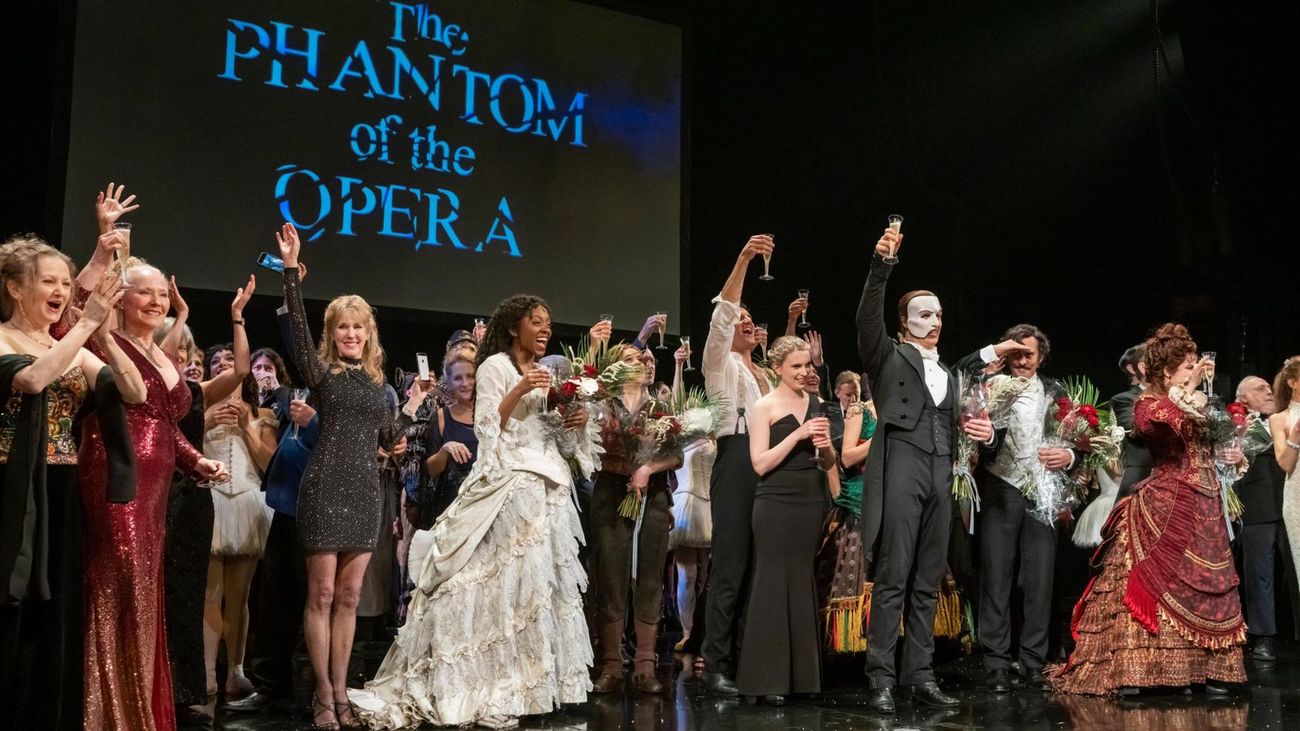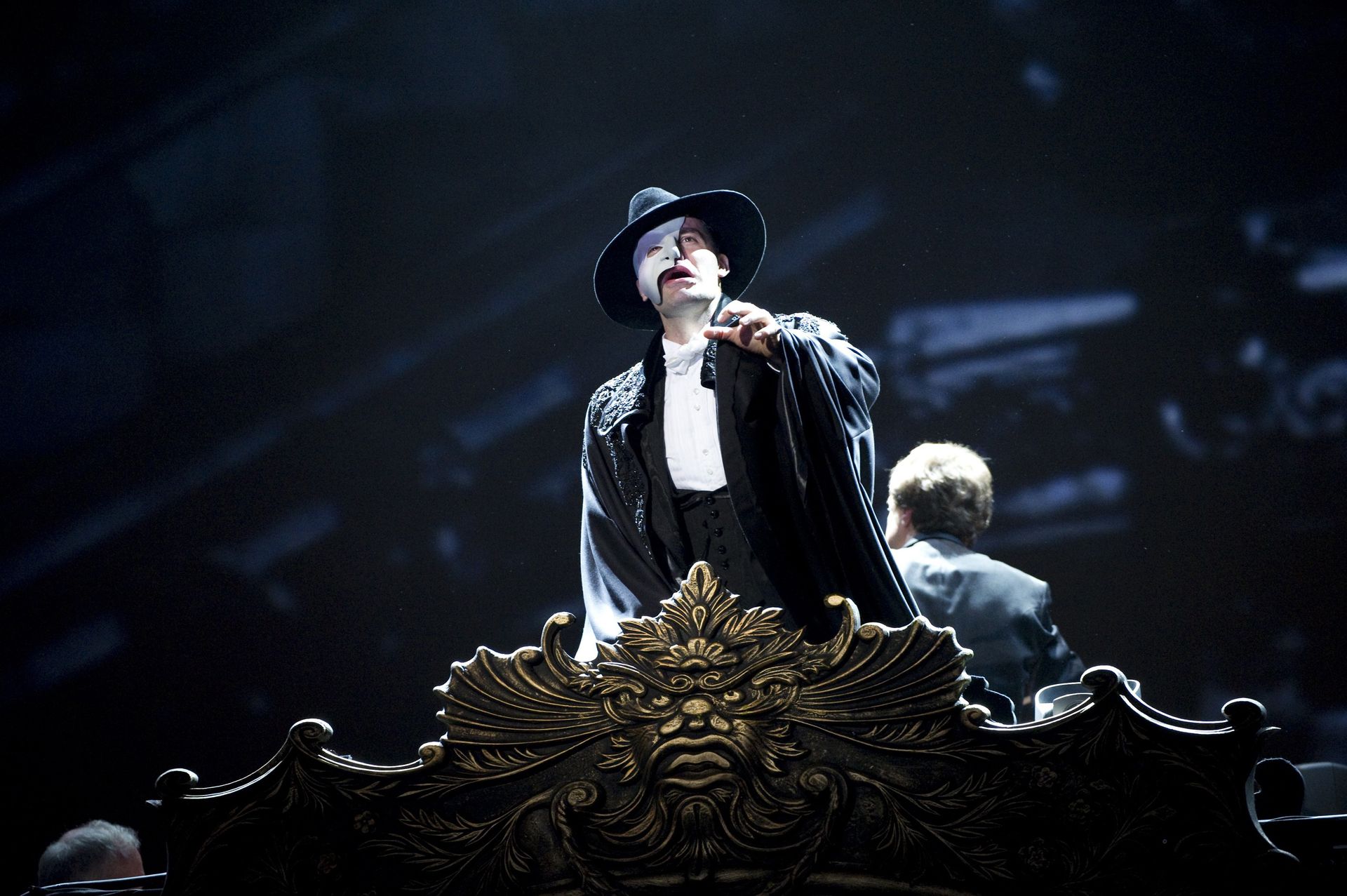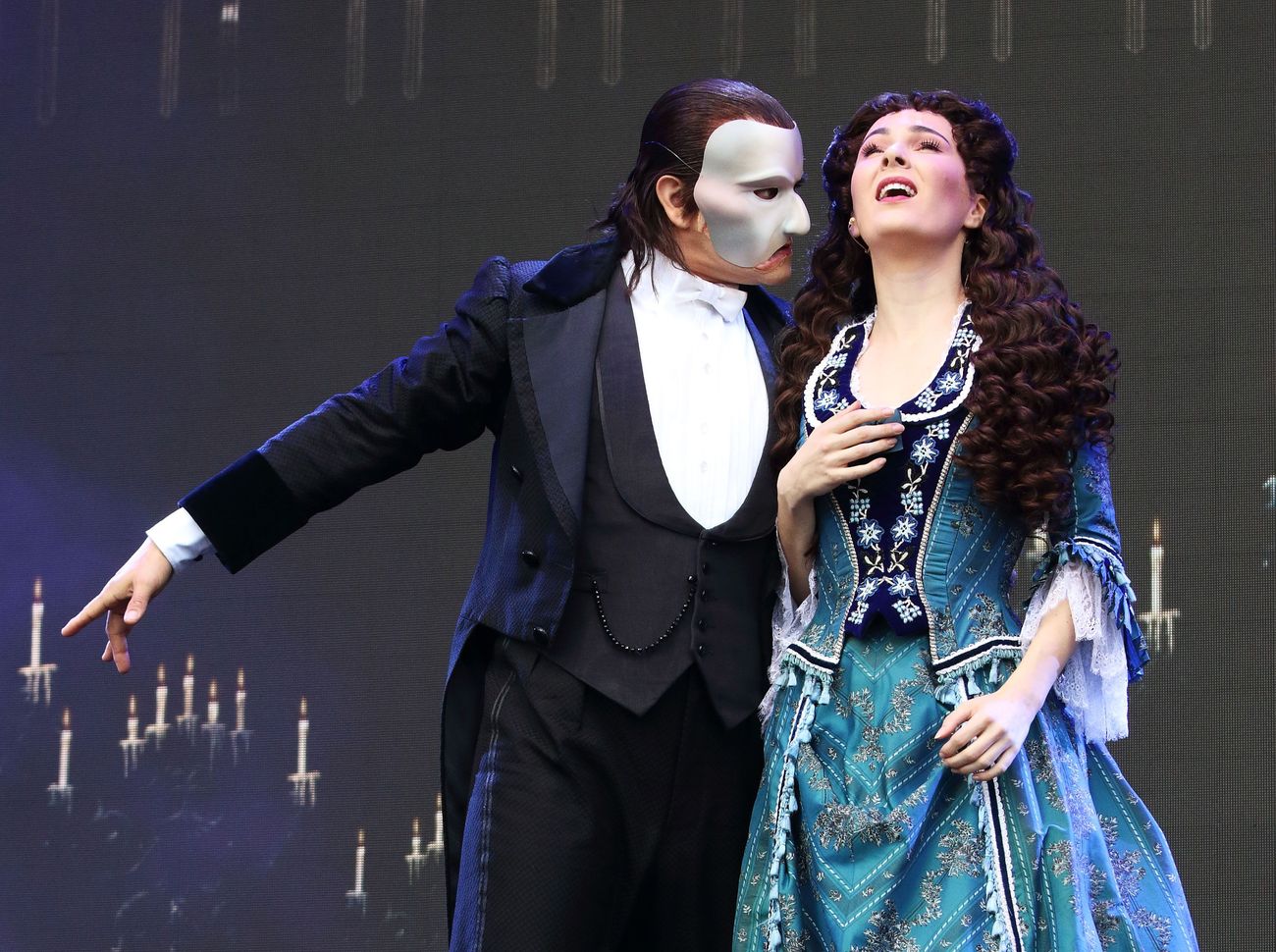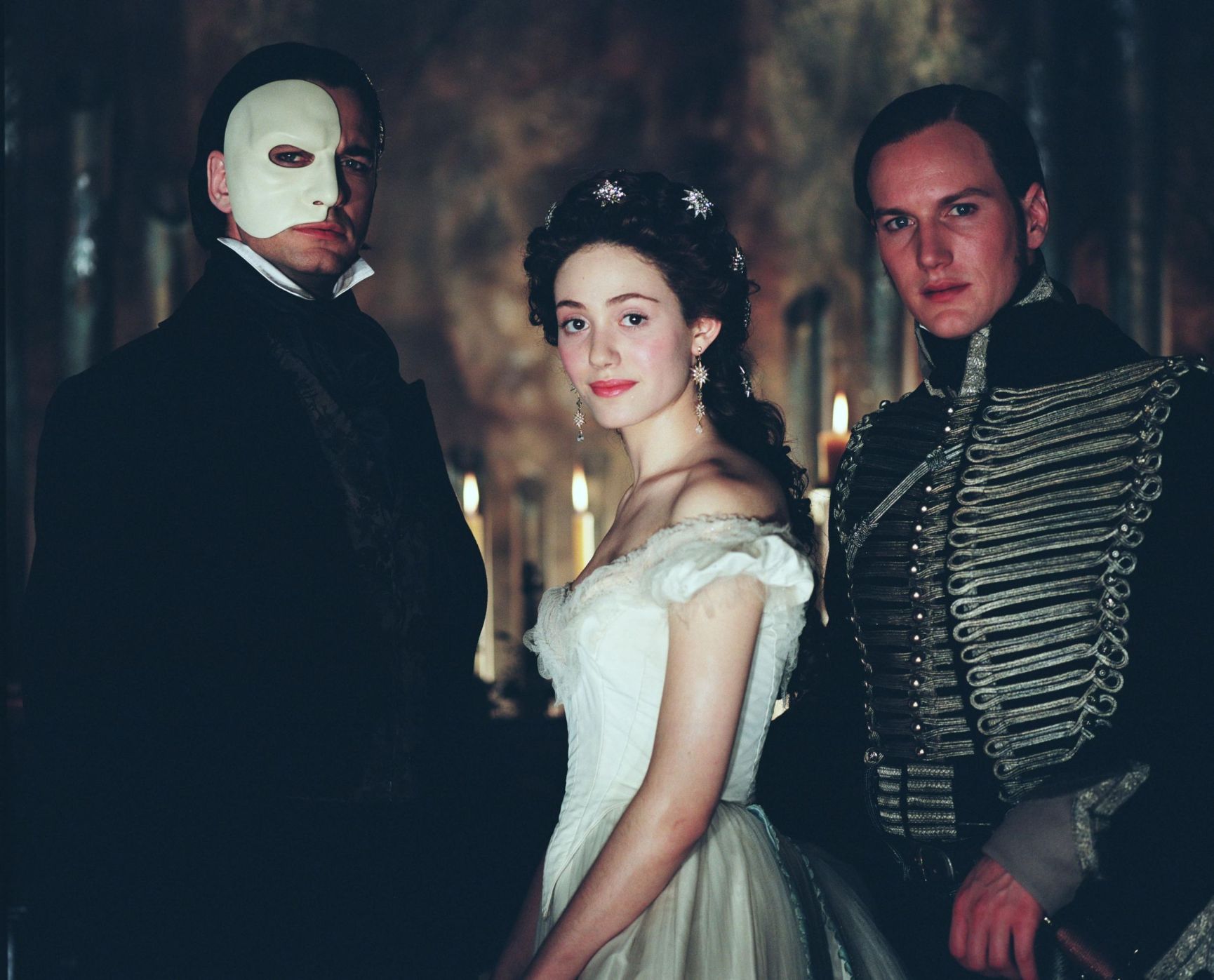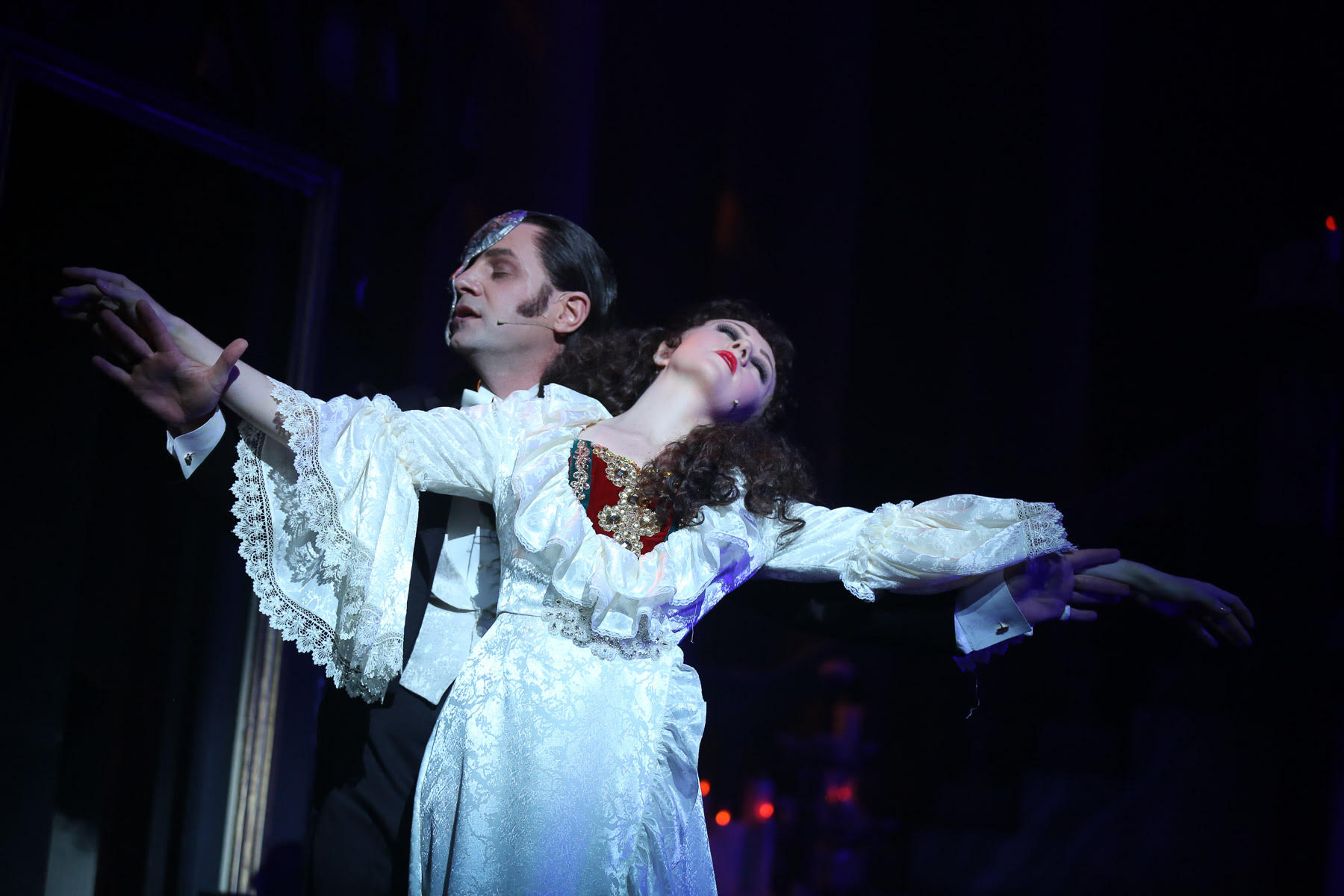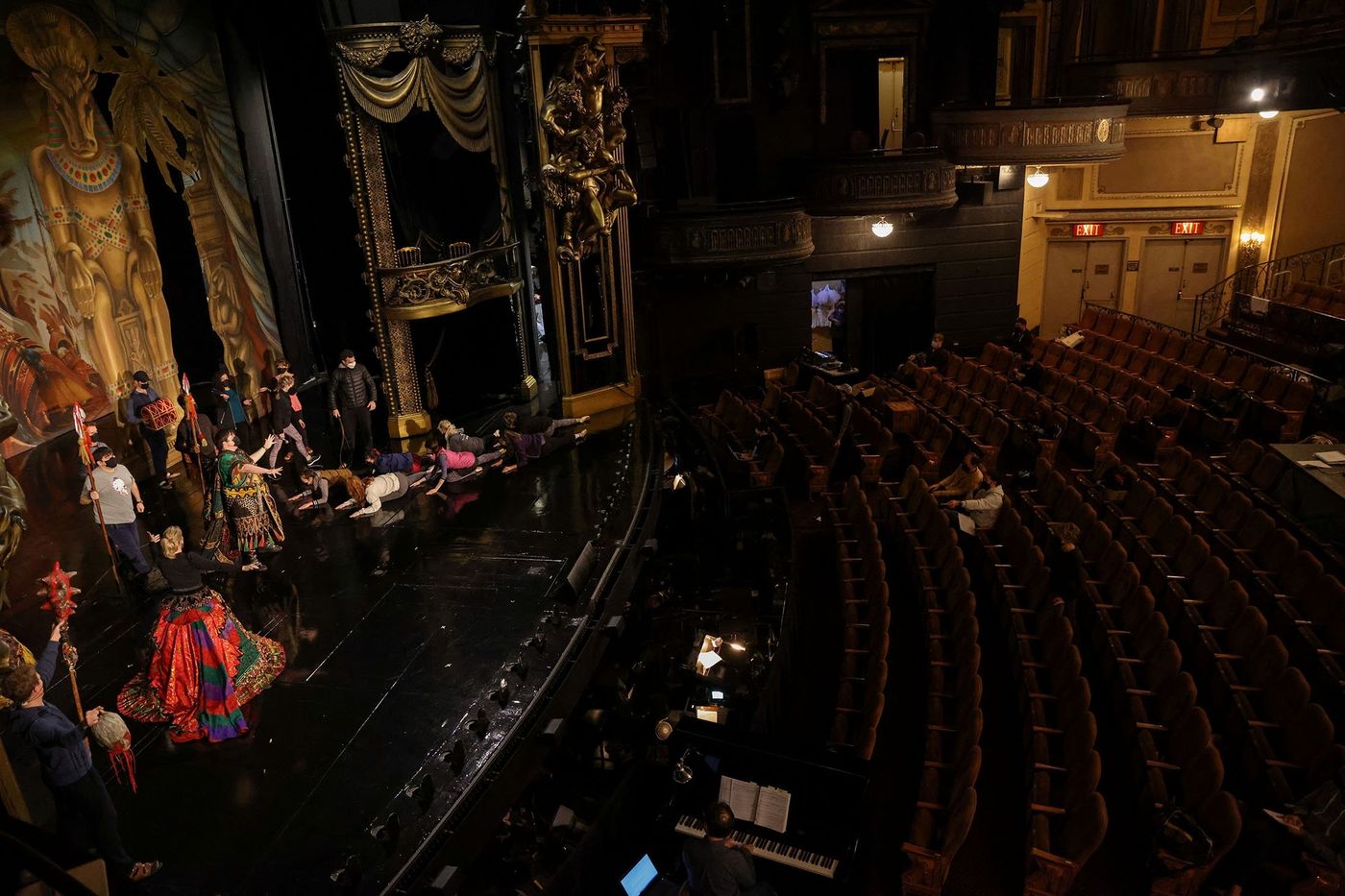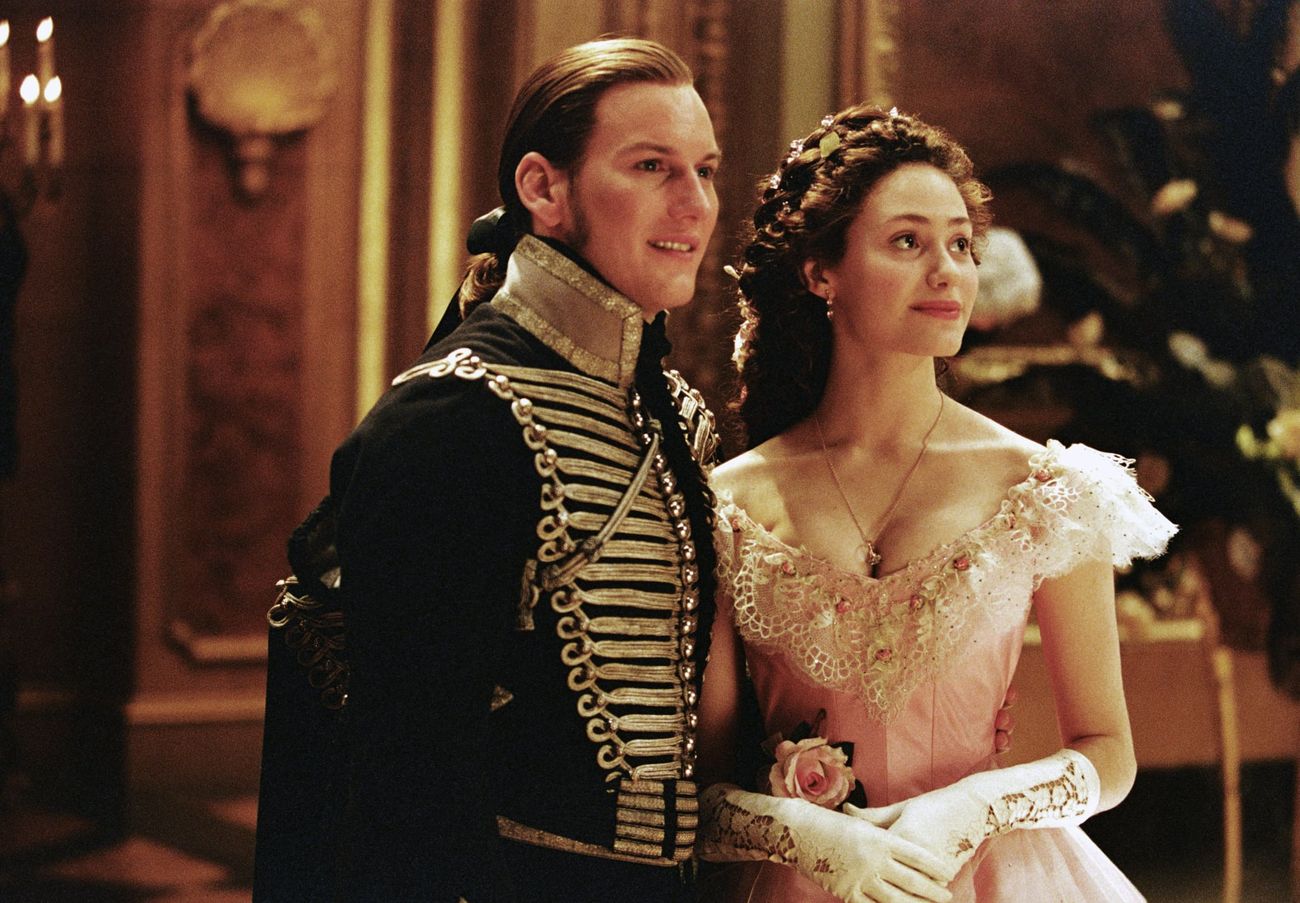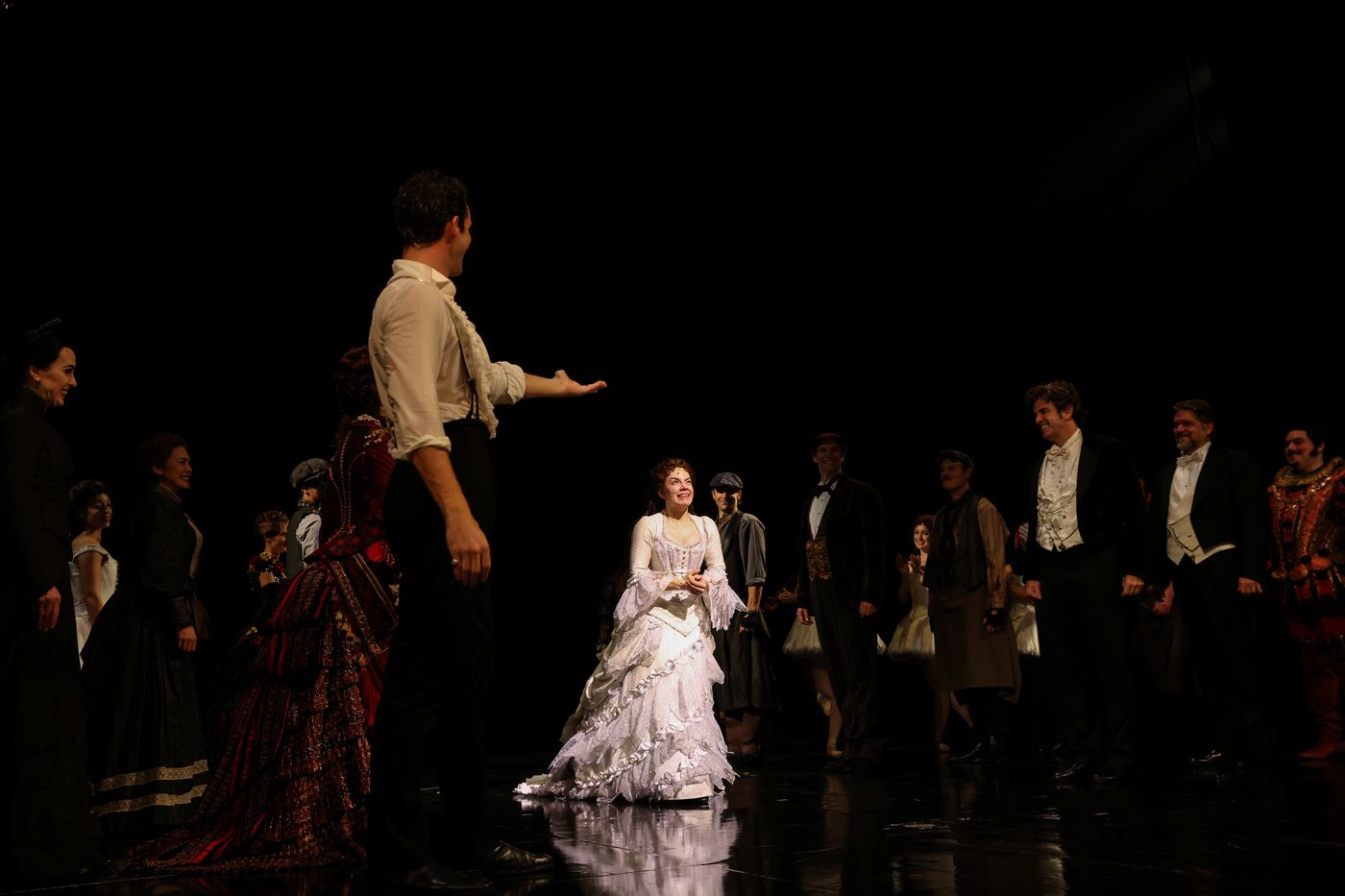Home>Events & Info>Opera>Why Is The Phantom Of The Opera Closing
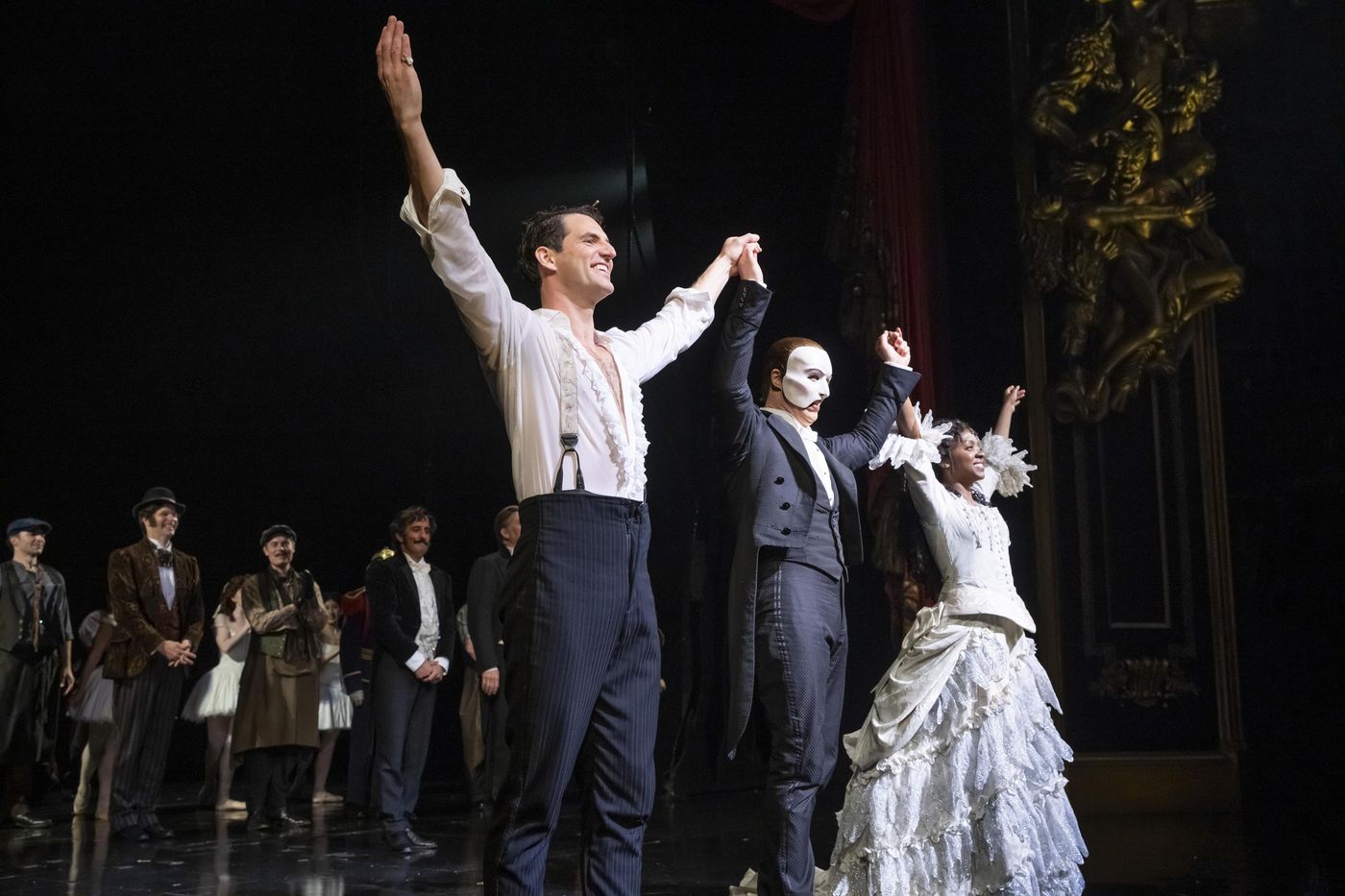

Opera
Why Is The Phantom Of The Opera Closing
Modified: January 22, 2024
Discover why the iconic Phantom of the Opera is closing its curtains, as we delve into the mysteries and allure of this timeless opera.
(Many of the links in this article redirect to a specific reviewed product. Your purchase of these products through affiliate links helps to generate commission for AudioLover.com, at no extra cost. Learn more)
Table of Contents
- Introduction
- The History of The Phantom of the Opera
- The Impact and Legacy of The Phantom of the Opera
- Recent Challenges Faced by The Phantom of the Opera
- Reasons for the Closure of The Phantom of the Opera
- Criticisms and Controversies Surrounding the Closure
- The Future of The Phantom of the Opera
- Conclusion
Introduction
The Phantom of the Opera is a beloved and iconic musical that has captivated audiences around the world for decades. With its timeless story, enchanting music, and stunning production, it has become a cultural phenomenon and a staple in the realm of musical theater.
Based on Gaston Leroux’s novel of the same name, The Phantom of the Opera tells the haunting tale of a disfigured musical genius who becomes obsessed with a young soprano named Christine. Set in 19th century Paris, the musical takes audiences on a journey filled with romance, mystery, and tragedy.
Since its premiere in 1986, The Phantom of the Opera has become the longest-running show in Broadway history, with over 13,000 performances. It has also garnered numerous awards, including multiple Tony Awards and a Laurence Olivier Award for Best Musical. Its success has extended beyond the stage, with multiple film adaptations and countless international productions.
The Phantom of the Opera has left an indelible mark on both the theater industry and popular culture. Its unforgettable score, composed by Andrew Lloyd Webber, features iconic songs such as “The Music of the Night” and “All I Ask of You.” The lavish production, complete with elaborate sets, stunning costumes, and breathtaking special effects, has set the standard for spectacle in musical theater.
Audiences have been drawn to The Phantom of the Opera for its timeless themes of love, desire, and redemption. The complex characters, including the tormented Phantom, the innocent Christine, and the suave Raoul, have resonated with audiences of all ages. The emotional depth and powerful storytelling have ensured its enduring popularity throughout the years.
However, as with any long-running show, The Phantom of the Opera has faced its fair share of challenges. In recent years, there has been speculation and controversy surrounding the potential closure of the show. In this article, we will delve into the history, impact, challenges, and ultimately, the reasons behind the closure of The Phantom of the Opera.
The History of The Phantom of the Opera
The origins of The Phantom of the Opera can be traced back to Gaston Leroux’s novel, which was first published in 1910. The novel gained popularity for its intriguing storyline and themes of love, obsession, and the supernatural. It was later adapted into a silent film in 1925, further cementing its place in popular culture.
However, it was the musical adaptation by Andrew Lloyd Webber that propelled The Phantom of the Opera to global fame. Inspired by the novel and with an original libretto by Charles Hart, the musical first premiered in London’s West End in 1986. The production, directed by Harold Prince and featuring set designs by Maria Björnson, was an instant success.
The original London production of The Phantom of the Opera ran for over 34 years, with more than 13,000 performances. It became the longest-running show in West End history, enchanting audiences night after night with its captivating performances and breathtaking production values.
In 1988, The Phantom of the Opera made its debut on Broadway, where it continues to run to this day. The show has become a mainstay of the New York theater scene, attracting audiences from around the world. Its success on Broadway further solidified its status as a cultural phenomenon and a must-see theatrical experience.
The Phantom of the Opera has also enjoyed immense success beyond London and Broadway. It has been translated into multiple languages and has been produced in numerous countries, including Australia, Canada, Japan, and Germany, among others. The show’s enduring popularity has made it a global sensation, captivating audiences wherever it is performed.
Throughout its history, The Phantom of the Opera has undergone several revisions and updates, ensuring its appeal to new generations of theatergoers. The show has seen changes in casting, staging, and technical aspects, all aimed at keeping the production fresh and vibrant.
In addition to the live stage productions, The Phantom of the Opera has also been adapted into film and television. The 2004 film version, directed by Joel Schumacher and starring Gerard Butler and Emmy Rossum, brought the story to a wider audience and further cemented its status as a beloved classic.
With its rich and storied history, The Phantom of the Opera continues to captivate audiences around the world. Its timeless tale, mesmerizing music, and dazzling production values ensure its place as one of the most iconic and enduring musicals of all time.
The Impact and Legacy of The Phantom of the Opera
The Phantom of the Opera has made a significant impact on the world of musical theater and has left a lasting legacy that continues to influence the industry to this day. From its groundbreaking production to its enduring popularity, the show has set the standard for theatrical excellence.
One of the most significant impacts of The Phantom of the Opera is its contribution to the revitalization of the musical genre. Prior to its premiere, the 1980s were marked by a decline in original musicals, with many productions relying on jukebox musicals or revivals. The success of The Phantom of the Opera reignited interest in original musical storytelling and paved the way for a new wave of theatrical innovation.
The show’s influence can also be seen in its production values. The Phantom of the Opera was one of the first musicals to incorporate elaborate sets, stunning costumes, and groundbreaking special effects. The iconic chandelier drop and the Phantom’s lair are just a few examples of the show’s visually stunning moments. These innovative elements set a new standard for spectacle in musical theater and inspired future productions to push the boundaries of what was possible on stage.
Musically, The Phantom of the Opera has had a profound impact on the world of music and entertainment. Andrew Lloyd Webber’s score, with its memorable melodies and powerful ballads, has become synonymous with the show. Songs like “The Music of the Night” and “Think of Me” have become beloved classics, and the soundtrack has sold millions of copies worldwide. The show’s success has also paved the way for other musicals to explore darker and more operatic themes, expanding the range of storytelling within the genre.
The Phantom of the Opera has also had a lasting cultural impact. It has inspired countless fans to pursue careers in the performing arts, from aspiring actors and singers to set designers and makeup artists. Its influence can be seen in the numerous stage productions that have followed in its footsteps, as well as in the countless fan adaptations and tributes created by enthusiasts around the world.
Moreover, The Phantom of the Opera has become a tourist attraction in its own right. The show has drawn audiences from all corners of the globe, with dedicated fans travelling to New York, London, and other cities to experience the magic of the production. It has generated significant revenue for the theater industry, supporting local economies and providing employment opportunities for countless artists and performers.
Overall, the impact and legacy of The Phantom of the Opera cannot be understated. Its influence on the musical theater landscape, its groundbreaking production values, and its timeless music have solidified its place in the annals of theatrical history. As the show prepares to close its doors, its impact will continue to resonate with audiences for generations to come.
Recent Challenges Faced by The Phantom of the Opera
Despite its long-standing success, The Phantom of the Opera has faced its fair share of challenges in recent years. The changing landscape of the theater industry, shifting audience preferences, and economic factors have all contributed to the difficulties encountered by the production.
One of the main challenges faced by The Phantom of the Opera is the increasing competition in the musical theater market. With the rise of new and innovative shows, both on Broadway and in the West End, there is a constant demand for fresh and exciting productions. The Phantom of the Opera, despite its undeniable popularity, has had to compete with newer shows for audience attention and ticket sales.
Additionally, the changing demographics of theater audiences have presented a challenge for The Phantom of the Opera. Younger generations, in particular, seek more contemporary and immersive theater experiences. The traditional nature of The Phantom of the Opera, with its operatic elements and classic storytelling, may not resonate as strongly with younger theatergoers who are seeking more modern and dynamic productions.
The rising costs of production and running a long-term show have also posed challenges for The Phantom of the Opera. Maintaining the lavish sets, intricate costumes, and state-of-the-art special effects requires significant financial resources. As production costs continue to soar, it becomes more difficult to ensure the financial viability of a long-running show like The Phantom of the Opera, especially in the face of declining ticket sales or periods of low attendance.
Furthermore, the impact of external factors, such as global economic downturns and natural disasters, can also affect the viability of long-running shows like The Phantom of the Opera. Economic uncertainties can lead to decreased tourism and discretionary spending, impacting the number of theatergoers and their willingness to purchase tickets for shows.
In recent years, the COVID-19 pandemic has presented unprecedented challenges for the entire theater industry, including The Phantom of the Opera. The forced closure of theaters worldwide and the restrictions on live performances have severely impacted the show’s ability to generate revenue. The uncertainty surrounding the timeline for theaters to fully reopen and return to normal operations has further exacerbated the challenges faced by The Phantom of the Opera.
Despite these challenges, The Phantom of the Opera has demonstrated resilience and adaptability. The production has implemented strategies to attract new audiences, such as marketing campaigns targeted towards younger demographics and exploring digital platforms to engage with fans. The show has also embarked on international tours, allowing it to reach audiences beyond its traditional London and Broadway locations.
As The Phantom of the Opera faces the inevitability of closure, it serves as a reminder of the ongoing challenges faced by long-running shows in an ever-evolving theater industry. It is a testament to the dedication and passion of the cast, crew, and creative team that they have been able to navigate these challenges and maintain the production for as long as they have.
Reasons for the Closure of The Phantom of the Opera
The closure of The Phantom of the Opera, despite its longstanding success and dedicated fan base, is driven by a combination of factors that have made its continuation financially and logistically challenging. Below are some of the key reasons behind the decision to close the show.
First and foremost, the impact of the COVID-19 pandemic cannot be overstated. The worldwide closure of theaters and the ongoing uncertainty surrounding the return to full-scale live performances have had a devastating effect on the theater industry as a whole. The Phantom of the Opera, like many other productions, has been unable to generate revenue due to the lack of ticket sales during extended periods of closure. The financial strain caused by the pandemic has rendered it challenging for the show to sustain its operations and make a viable long-term plan for the future.
Another factor contributing to the closure is the decline in ticket sales in recent years. While The Phantom of the Opera has enjoyed immense popularity throughout its run, attracting audiences from around the globe, there has been a gradual decline in attendance. This can be attributed, in part, to changing audience preferences and the emergence of newer, more contemporary musicals that align better with the tastes of younger theatergoers. As the theater landscape continues to evolve, attracting new audiences and sustaining interest in a long-running show becomes increasingly difficult.
Additionally, the high production and operating costs associated with The Phantom of the Opera have played a role in the decision to close. Maintaining the show’s lavish sets, intricate costumes, and complex technical elements requires substantial financial resources. The cost of running a production of this scale for an extended period of time, coupled with declining ticket sales and other economic challenges, has made it financially unsustainable to continue operating at a profitable level.
Lastly, the closure of The Phantom of the Opera may also be influenced by the desire to make way for new and innovative productions. The theater industry thrives on creativity and fresh storytelling, and rotating shows allows for a continuous influx of new and exciting experiences for theatergoers. By ending The Phantom of the Opera’s run, theater companies can create opportunities for new shows to take the stage and captivate audiences with their unique offerings.
While the closure of The Phantom of the Opera may be bittersweet for its dedicated fan base, it is important to recognize the numerous challenges that the show has faced in recent years. The combination of pandemic-related circumstances, declining ticket sales, high production costs, and the need for artistic renewal have all contributed to the decision to bring this iconic production to a close.
Criticisms and Controversies Surrounding the Closure
The announcement of the closure of The Phantom of the Opera has not been without its share of criticisms and controversies. While many fans understand the challenges faced by the production, others have expressed disappointment and frustration over the decision. Below are some of the criticisms and controversies surrounding the closure of The Phantom of the Opera.
One of the main criticisms revolves around the timing of the closure. Some fans feel that the decision to end the show came prematurely, especially considering its historical significance and continued popularity. They argue that The Phantom of the Opera still has a strong and loyal audience base, and a longer run would have allowed more people to experience the production and continue its legacy. The closure has also been seen as a missed opportunity to celebrate the show’s achievements with a grand farewell performance or special events.
Another point of controversy is the impact of the closure on the theater industry as a whole. With the closure of a long-running show like The Phantom of the Opera, there is concern about the loss of jobs for the cast, crew, and other theater workers who rely on the production for employment. Additionally, some argue that the closing of such a beloved and iconic show may have a negative effect on tourism and the overall health of the theater district, particularly in cities like New York and London where The Phantom of the Opera has been a major draw for visitors.
Furthermore, there has been criticism regarding the lack of transparency surrounding the decision to close the show. Some fans feel that they were not given enough information or notice about the closure, leading to a sense of disappointment and confusion. They believe that the show’s producers should have been more forthcoming about the reasons behind the closure and engaged in open dialogue with the fan community.
However, it is important to acknowledge that the decision to close The Phantom of the Opera is based on a combination of financial, logistical, and artistic factors that are unique to the production. The challenges faced by the show, including declining ticket sales, the impact of the COVID-19 pandemic, and the desire for artistic renewal, cannot be underestimated. It is ultimately up to the producers and creative team to make the difficult decisions that best serve the longevity and sustainability of the production.
While the criticisms and controversies surrounding the closure of The Phantom of the Opera are understandable, it is important to remember the remarkable legacy that the show has left behind. Its impact on the theater industry, the countless memories created for audiences, and the countless careers it has launched or sustained cannot be diminished by the decision to end its run. The Phantom of the Opera will forever hold a special place in the hearts of theater lovers worldwide, and its influence will continue to be felt for years to come.
The Future of The Phantom of the Opera
While the closure of The Phantom of the Opera marks the end of an era, it does not necessarily mean the end of the show’s presence in the theater world. The future of The Phantom of the Opera holds potential for new opportunities and adaptations, ensuring that the beloved story of the Phantom, Christine, and their timeless romance continues to captivate audiences.
One possibility for the future of The Phantom of the Opera is the development of new productions and revivals in different locations around the world. While the original London and Broadway productions may come to a close, the show could find new life in regional theaters, touring productions, and international stagings. This would allow audiences who have not had the opportunity to see the show in its traditional locations to experience the magic of The Phantom of the Opera.
Additionally, there is scope for innovative reinterpretations of The Phantom of the Opera. Theater companies and creative teams may reimagine the show with updated designs, modern aesthetics, and fresh perspectives. By incorporating new staging techniques, technology, and artistic interpretations, directors and designers can bring a contemporary spin to the timeless story, attracting a new generation of theatergoers.
The digital realm also offers possibilities for the future of The Phantom of the Opera. With the increasing popularity of streaming platforms, there could be opportunities to adapt the show into a filmed or recorded version, allowing audiences to experience the production from the comfort of their homes. Digital mediums also provide avenues for behind-the-scenes content, interactive experiences, and virtual performances, offering a new level of engagement for fans.
Furthermore, The Phantom of the Opera can continue to live on through fan adaptations, tributes, and community theater productions. The enduring popularity of the show has inspired countless individuals to create their own versions, whether in school productions, amateur theaters, or online platforms. These fan-driven adaptations keep the spirit of the show alive and provide opportunities for emerging talents to showcase their skills.
It’s important to note that for any future endeavor involving The Phantom of the Opera, there will be a need for continued collaboration with the original rights holders, creative team, and producers. Their involvement and support will ensure that any new productions or adaptations maintain the integrity of the story and honor the legacy of the show.
Although The Phantom of the Opera as we know it may be coming to a close, the show’s impact and legacy will endure. The timeless tale of love, obsession, and redemption, along with its iconic music and unforgettable characters, will continue to inspire and engage audiences for generations to come. As the curtains fall on one chapter, the future of The Phantom of the Opera holds the promise of new and exciting possibilities for this beloved theatrical masterpiece.
Conclusion
The closure of The Phantom of the Opera marks the end of an era for one of the most iconic and beloved musicals in history. Throughout its long and illustrious run, the show has left an indelible mark on the theater industry, captivating audiences with its enchanting story, mesmerizing music, and breathtaking production values.
From its humble origins as a novel by Gaston Leroux to its record-breaking run in London’s West End and on Broadway, The Phantom of the Opera has become a cultural phenomenon. It has entertained millions of theatergoers around the world, inspiring countless fans to fall in love with the magic of musical theater.
While the decision to close the show is not without its criticisms and controversies, it is important to recognize the many challenges that The Phantom of the Opera has faced in recent years. Factors such as declining ticket sales, rising production costs, and the impact of the COVID-19 pandemic have all contributed to the difficult choice to bring the production to a close.
However, the closure of The Phantom of the Opera does not mark the end of its legacy. The future holds the potential for new productions, innovative adaptations, and exciting opportunities for the story to live on. Whether through regional productions, digital platforms, or fan-driven adaptations, the enduring appeal of The Phantom of the Opera ensures that its magic will continue to resonate with audiences for generations to come.
As we bid farewell to The Phantom of the Opera, let us celebrate the extraordinary impact it has had on the theater world. Its influence on musical theater storytelling, its groundbreaking production values, and its unforgettable music have solidified its place as a true masterpiece. The Phantom of the Opera will forever hold a special place in the hearts of theater lovers, reminding us of the power of storytelling and the enduring legacy of the performing arts.

